Insurance for Group Homes: 7 Powerful Benefits
Insurance for group homes is an important protection that covers residents, employees, and property against unforeseen losses. Group homes are exposed to special risks, and proper coverage means peace of mind. Without it, minor accidents could result in significant financial losses.
Selecting the appropriate insurance for group homes is more than just being in compliance—it’s about fostering a safe, stable environment. From damaged property to liability claims, solid insurance allows you to worry less about risks and more about care. Let’s explore the strong advantages of getting covered today.
Table of Contents
What is Insurance for Group Homes?
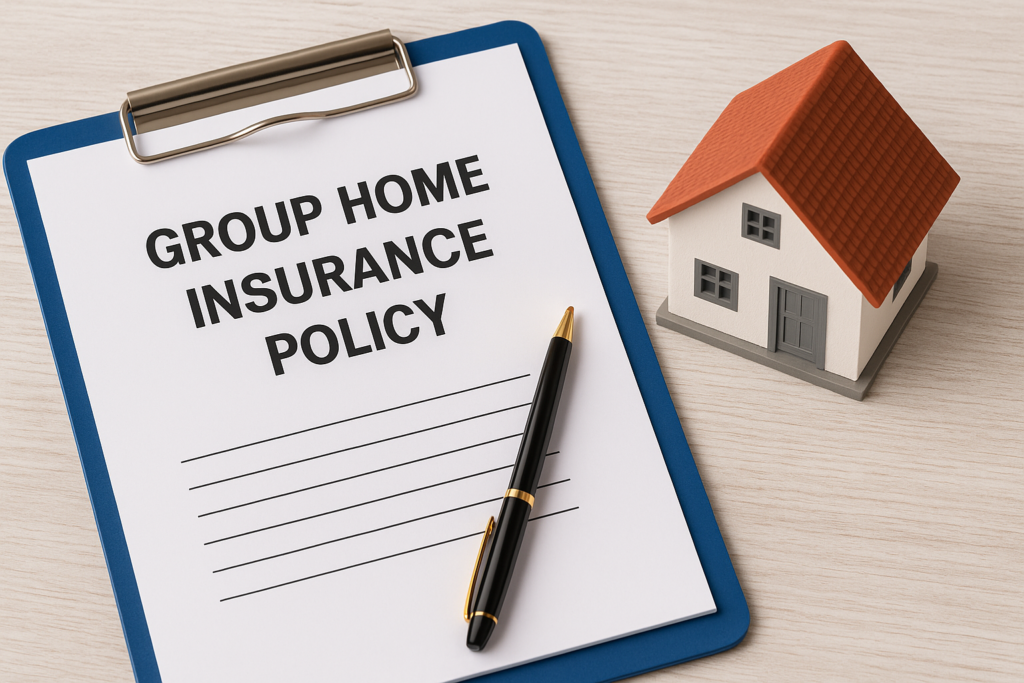
Insurance for group homes is a specialized type of coverage that is meant to deal with the particular risks involved with residential care facilities. It takes the best features of both homeowners and commercial insurance and blends them together to cover the home, its owners, and its occupants. Companies such as The Hartford provide tailored plans that meet these special needs.
Without this kind of insurance, group homes are vulnerable to severe legal and financial repercussions following accidents, injuries, or property damage.
7 Powerful Benefits of Insurance for Group Homes
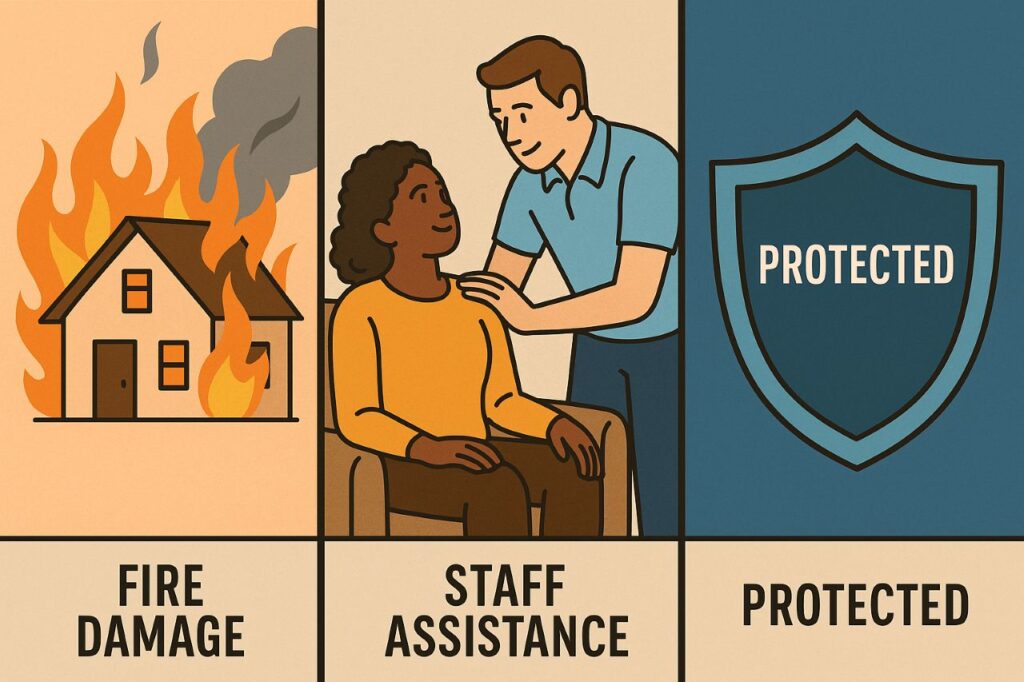
Operating a insurance for group homes is a righteous but demanding duty that entails tending to at-risk residents, as well as staff, buildings, and regulations. One crucial tool that protects all these pieces is group home insurance. Following are seven mighty advantages that prove why it’s not only prudent—but imperative.
1. Liability for Property Damage
Fires, floods, acts of vandalism, or natural disasters such as hurricanes and earthquakes may inflict substantial damage on group home facilities. Repairing or reconstructing from the ground up can mean prohibitive costs and prolonged disruptions to care for residents.
Insurance for group homes generally comes with property coverage that assists in covering:
- Structural repairs.
- Equipment or furnishings damaged.
- Temporary relocation if necessary.
This reduces downtime, minimizes financial stress, and allows you to get back into services as soon as possible.
2. Liability Coverage for Staff and Residents
Group homes are busy environments, and accidents are bound to happen—whether it’s a slip-and-fall, a kitchen injury, or a behavioral incident between residents. Liability insurance ensures that you’re protected from lawsuits and claims involving bodily injury or property damage.
Policies often cover:
- Medical expenses for injured parties.
- Legal defense fees.
- Settlement or court-ordered damages.
This not only safeguards your finances but also upholds your reputation as a safe and responsible care giver.
Medical Emergency Coverage
Prompt medical attention is crucial for group home residents, many of whom might have special needs, chronic illnesses, or need daily care. Certain insurance policies include emergency medical coverage as part of their overall general liability or specialty care packages.
This guarantees:
- Immediate response to resident health emergencies.
- Compliance with health care regulations.
- Peace of mind for families who depend on your facility for reliable care.
4. Financial Protection from Lawsuits
Despite the best efforts, group homes may be sued—whether for neglect, duty breach, or operational errors. Insurance for group homes offers professional liability and legal expense coverage, allowing you to handle claims without depleting your resources.
As per the Insurance Journal, liability coverage is crucial for service-oriented businesses where supervision and care are routine tasks. It safeguards your facility against:
- Negligence claims.
- Lawsuits against discrimination.
- Claims of abuse or misconduct.
5. State Regulation Compliance
Every state has different licensing requirements for group homes, most of which require specific insurance policies such as workers’ compensation, general liability, or malpractice insurance. Remaining compliant ensures:
- Seamless compliance with license renewal.
- Avoidance of legal sanctions.
- Ongoing availability of government subsidies or grants.
Having adequate insurance is not merely a safety net—it’s sometimes a legal requirement for your continued operations.
6. Business Interruption Assistance
If your building becomes unlivable because of fire, flood, or other catastrophes, your revenue stream might be interrupted. Business interruption coverage is an integral component of insurance for group homes and can cover lost income due to temporary shutdowns.
This kind of coverage can consist of:
- Continuation of payroll.
- Temporary space rental.
- Downtime operational expenses.
It keeps you financially secure so that you can bounce back easily and resume resident care.
7. Peace of Mind for Owners, Staff, and Families
Lastly, having comprehensive insurance coverage gives you something precious peace of mind. Families trust their loved ones to you, and employees expect a secure and professional work environment.
Insurance for group homes sends a clear message:
You’re prepared, responsible, and committed to providing quality care no matter what challenges arise.
It reinforces:
- Confidence in your leadership.
- Trust among residents and their families.
- Stability for staff and long-term sustainability for your business.
Conclusion:
In a field as sensitive and crucial as residential care, insurance isn’t optional—it’s a foundation for protection, professionalism, and operational excellence. Whether you’re opening a new facility or reviewing your current coverage, investing in insurance for group homes is one of the most compelling actions you can take.
Types of Coverage Included in Group Home Insurance
Operating an insurance for group homes involves not just shelter but also care, supervision, and support—often to vulnerable populations. Due to the complexity and responsibility involved, group home insurance is crafted to cover a wide variety of risks under one single package. Below is a breakdown of the most critical types of coverage usually included:
General Liability Insurance
This is the basis of any business insurance policy. General liability coverage defends your group home against third-party suits for:
- Bodily injury (for example, a visitor slips and falls).
- Property damage (for example, contractor equipment damaged on-site).
- Legal defense fees and settlements.
This coverage is paramount in establishing a safe and legally sound environment for residents, employees, and visitors alike.
Property Insurance
Insurance for group homes tend to come from residential-style buildings that are specially designed to fit care services. Property insurance insures against:
- The actual building structure (fire, storm, or malicious damage).
- Internal contents such as furniture, cooking equipment, and medical equipment.
- Precious records and materials.
Either if you own or lease the property, this insurance means you can regain speedily in physical damage and not be under disruption for so long.
Workers’ Compensation Insurance
If your group home does employ workers, workers’ compensation insurance is generally mandated by law in the majority of states. It insures:
- Medical expenses for employees hurt at work.
- Lost time pay while recovering.
- Rehabilitation treatments.
It not only safeguards employees, but it keeps your group home in compliance with labor regulations and out of expensive legal battles.
Professional Liability (Errors & Omissions Insurance)
Insurance for group homes that offer care services—like medication management, daily help, or therapy—require professional liability coverage, or Errors & Omissions (E&O) insurance.
This coverage shields your company in case of:
- A resident or family member accuses you of neglect or poor care.
- Staff administers the wrong medication or morning/evening routine.
- Emotional distress or mishandled service claims.
It’s especially significant for group homes that have medical, developmental, or mental health support programs.
Abuse and Molestation Coverage
Unfortunately, even the best-run group homes are susceptible to abuse or neglect claims. Abuse and molestation coverage protects against these extremely sensitive and potentially catastrophic situations.
This coverage can:
- Pay for defense costs if there are accusations.
- Pay settlements or judgments if the home is held liable.
- Provide peace of mind to families, in the knowledge such problems are not taken lightly.
Since group homes frequently deal with minors, the elderly, or those with disabilities, this insurance is essential and sometimes mandated by licensing authorities.
Umbrella Liability Policies
Ordinary liability coverage carries limits—and that’s where an umbrella policy fits in. It serves as a safety net, offering extra protection if:
- A lawsuit surpasses your general liability limits.
- You’re facing multiple claims from a single incident.
- You want higher overall limits across various policies.
Umbrella coverage can be the difference between financial stability and bankruptcy in extreme cases.
Comprehensive Bundled Policies
Leading insurers such as Nationwide offer bundled group home insurance packages, which combine all the coverages listed above into one customized plan. Bundling often results in:
- Lower overall premiums.
- Easier policy management.
- Consistent protection across multiple risks.
These customized packages are particularly useful for group homes that serve more than one state or offer specialized services.
Conclusion:
Insurance for group homes is not a one-size-fits-all proposition. Your policy should mirror your services, staff, facilities, and risk level. By having all the proper policies in place—from general liability to abuse coverage—you safeguard your residents, your staff, and your mission.
Who Needs Group Home Insurance?

Running a group home is a mission-based activity, but it also involves substantial legal, financial, and operational exposure. Insurance for group homes is a must for any person, business, or organization offering residential care services. Lacking proper coverage, even one lawsuit, accident, or compliance problem might threaten your business and financial well-being.
Here’s a closer examination of who exactly requires group home insurance:
Group Homeowners and Operators for the Disabled, Elderly, or Mentally Sick
As a group homeowner for seniors, mentally challenged individuals, or physically disabled residents, you are at risk every day for providing medical care, supervision, property upkeep, and protection of residents.
Insurance for group homes covers you against:
- Negligence and injury lawsuit liability.
- Natural disasters, accidents, or property damage.
- Family member or regulatory agency claims.
Whether you operate a small home with a handful of residents or a larger multi-unit building, having adequate insurance is essential to safeguard your property, your employees, and your mission.
Non-Profit Organizations Operating Transitional Housing or Youth Shelters
Non-profit organizations providing transitional housing solutions for at-risk populations—such as runaway youth, domestic violence victims, or recovering addicts—need to have group home insurance.
These settings typically entail complicated care requirements and greater emotional or behavioral risk, which makes them most vulnerable to:
- Resident or staff injury claims.
- Abuse or neglect claims.
- Damage or loss of property due to emergencies or vandalism.
Appropriate insurance guarantees that such essential community programs continue to be funded, licensed, and functioning even when unforeseen adversity arises.
Specialized Care Providers Serving Clients with Developmental Disabilities or Special Needs
Organizations that provide specialized residential care—such as autism spectrum disorder, Down syndrome, or intellectual disability support—have distinct insurance requirements.
In such facilities, events like medication mistakes, mobility aid accidents, or behavioral interventions can lead to claims or lawsuits.
Insurance for group homes offers individualized protection, including coverage of:
- Professional liability for staff negligence.
- Medical emergencies and transportation services.
- Abuse and molestation claims, which are essential when working with at-risk populations.
Without full insurance, one negative incident would result in catastrophic financial and reputational damage.
Why is insurance for group homes so important?
Without insurance for group homes, operators and organizations risk losing a tremendous amount of money, including:
- Lawsuits from residents, their families, or third parties.
- Loss of property due to fires, floods, theft, or vandalism.
- Compliance issues that might bring about fines, penalties, or cancellation of operating licenses.
In the complicated care environment of today, insurance is no longer just an extra feature—it’s an essential operational safety net.
Conclusion:
Whether you’re a private owner, a non-profit group home, or a specialty care organization, having group home insurance means that your care and support mission is always safe. It provides financial protection, legal protection, and peace of mind for you, your residents, and your staff.
How to Choose the Right Policy-insurance for group homes

Selecting the appropriate insurance for group homes isn’t merely about obtaining the lowest premium—it’s about obtaining the proper protection for your residents, employees, property, and long-term cause. Here’s how to make the most informed choice:
Evaluating Your Risks
Each group home is distinct. Prior to insurance shopping, break down your specific risks, such as:
- The population of residents you serve (e.g., elderly, those with disabilities, youth in crisis).
- The type of service you offer (e.g., medical care, daily living services, therapy).
- The size and organization of your facility (one single residence, multiple sites, shared space).
- State and local regulatory mandates for insurance minimums.
Knowing your risk exposure ensures that you’re not underinsured or overpaying for excessive coverage.
Comparison Shopping
Don’t take the first quote you get. Shop around and get quotes from several reputable insurers who write group home or healthcare facility insurance.
Compare on:
- Coverage limits.
- Policy exclusions.
- Deductibles.
- Other services such as risk management assistance.
Sites such as Policygenius simplify the process of comparing various insurance products specifically designed for businesses and non-profits so that you can get the optimal value and protection combination.
Asking the Right Questions
Prior to committing to a policy, be ready to ask specific questions like:
- What precisely does the liability insurance cover? (Does it cover abuse and molestation claims?)
- Does professional service and staff mistake fall under professional liability?
- How long does the policy take to respond to a claim in the case of an occurrence?
- Is there any required risk management program attached or training that needs to be taken?
- Would the policy automatically increase with facility growth, or will it require manual adjustment?
The answers to these questions can uncover concealed limitations or extra benefits that greatly affect your decision. Websites like Policygenius make comparing insurance options easy for businesses and non-profits.
Common Mistakes to Avoid
Even veteran facility managers and owners are at risk of errors when purchasing group home insurance. Following are three of the most important blunders to prevent:
Underinsuring Your Property
The most prevalent and expensive mistake is to insure on market value, not rebuild value.
Market value is what one would pay for the property, whereas rebuild cost pays for:
- Construction materials.
- Labor.
- Adherence to revised building codes.
In the case of a total loss, underinsurance may leave you scrambling to pay for repairs or rebuilding. Always insure for replacement value.
Overlooking Liability Gaps
Not all general liability policies cover sensitive areas automatically such as:
- Abuse or molestation claims.
- Negligence in professional care.
- Medication errors.
Specifically inquire about these kinds of coverage. If they’re excluded, you’ll require separate policies or endorsements to cover the gaps.
Failing to address liability gaps leaves your facility dangerously exposed to lawsuits and regulatory penalties.
Not Reviewing Policies Regularly
Your group home isn’t static—residents change, services expand, and risks evolve.
Failing to review your insurance policy at least once a year could result in:
- Outdated coverage limits.
- Lack of coverage for new programs or expanded facilities.
- Compliance issues with changing state laws.
Set an annual insurance review with your broker to make sure your protection keeps pace with your organization.
Conclusion:
Choosing the best insurance for group homes is a continuous process that requires diligent assessment, wise comparison, and ongoing revision.
By shunning common pitfalls and inquiring smart questions, you can be sure your facility stays protected, compliant, and ready to serve your residents regardless of challenges that may come your way.
Read: 5 Proven Home Insurance Script Ideas That Win Clients
Frequently Asked Questions
Is insurance for group homes mandatory?
In most states, yes, especially if you are licensed and operate with staff.
How much does group home insurance cost?
Costs vary, but the average premium ranges from $2,500 to $8,000 annually, depending on location and services offered.
What does abuse coverage mean?
It protects your business if accusations of abuse or misconduct arise, providing legal defense and settlement coverage.
Can small group homes get insurance too?
Absolutely! Even small facilities benefit greatly from comprehensive group home insurance.
How often should policies be reviewed?
At least annually, or whenever there are major changes to your operations or staffing.


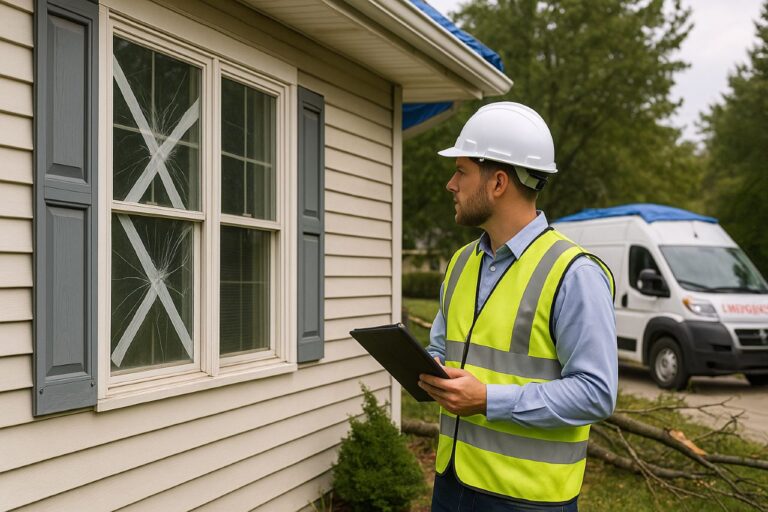

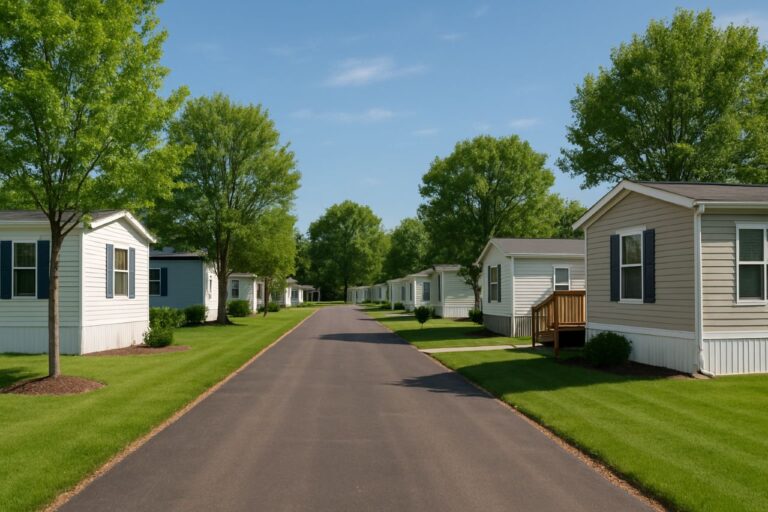
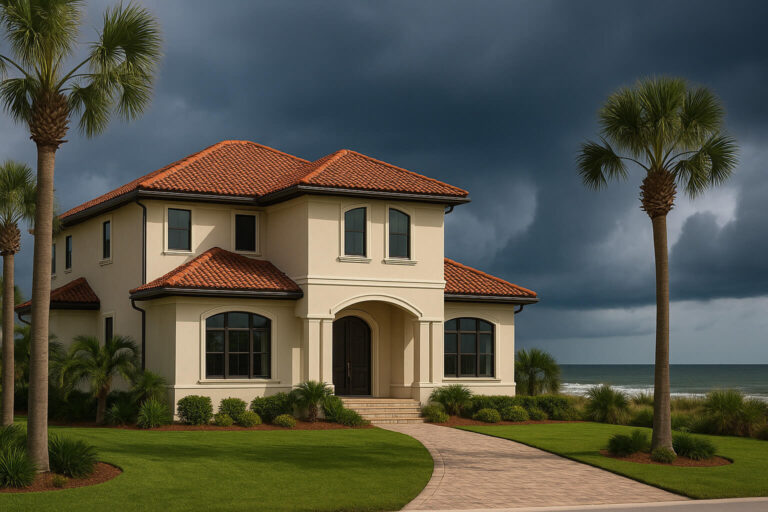


One Comment